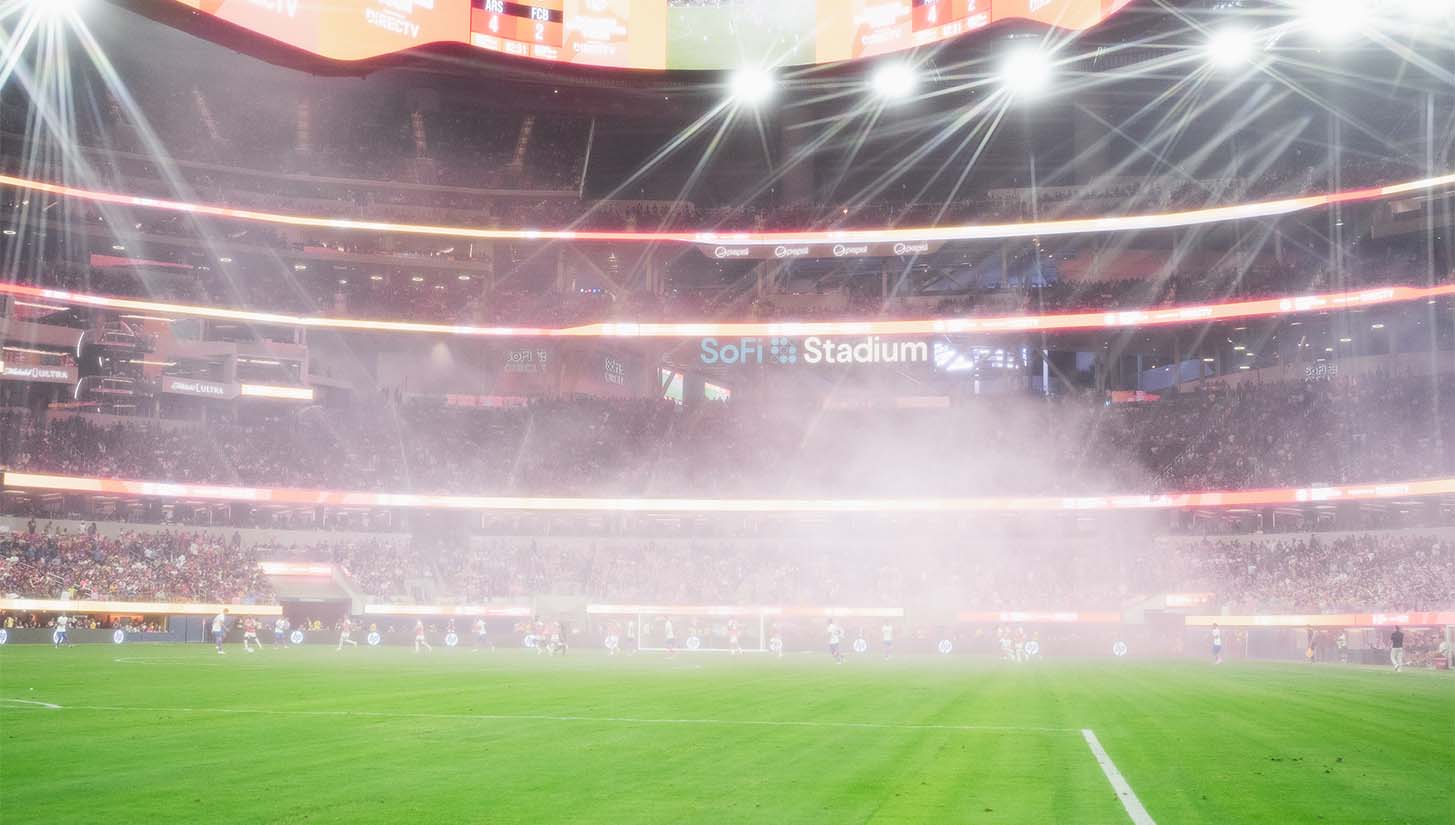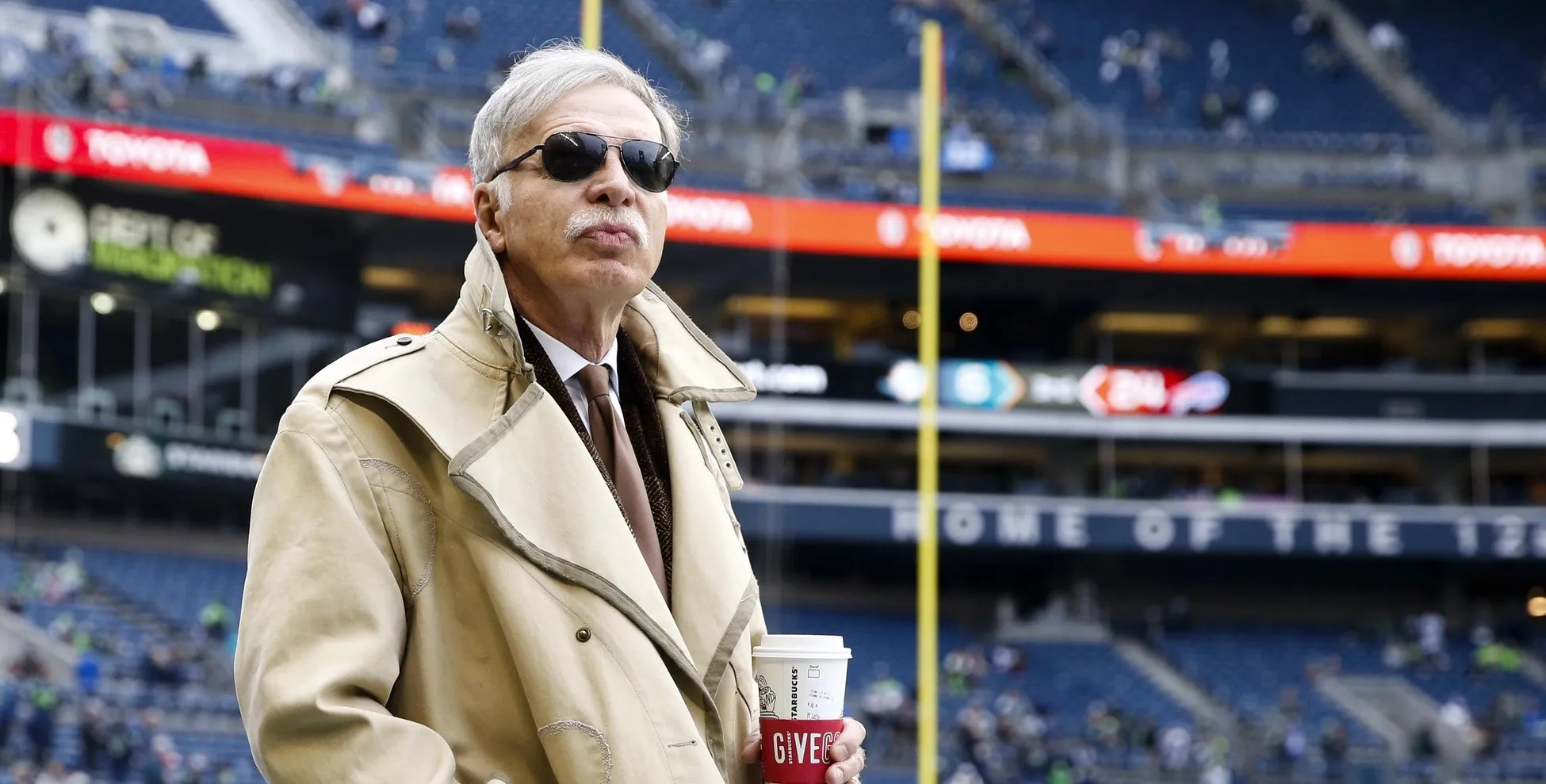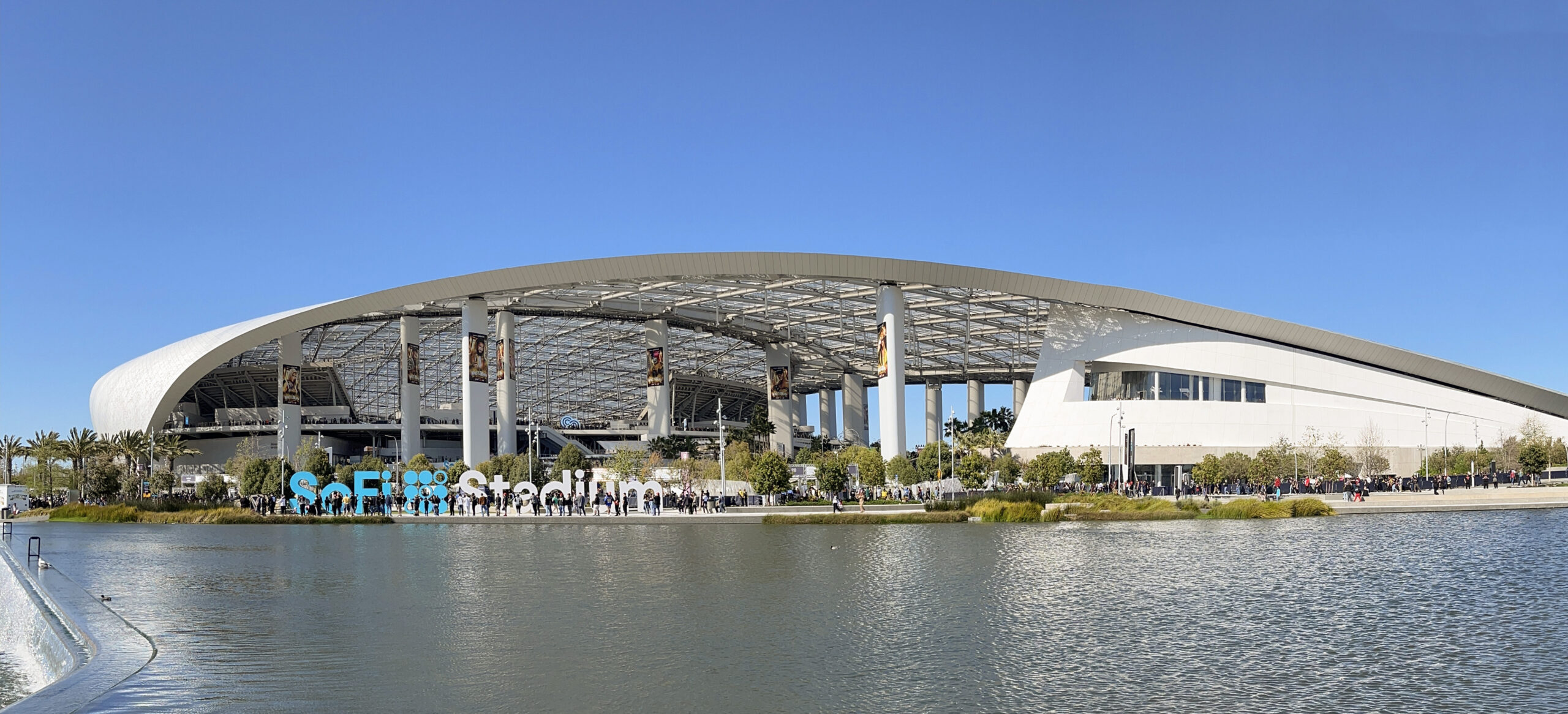Host of the last three World Cup finals in the United States, Los Angeles could miss out on the 2026 World Cup entirely. We take a look at the causes and potential effects of the battle for LA.
The 2026 World Cup is slowly sneaking up on us, and the hosting triumvirate of the United States, Mexico, and Canada are making necessary preparations for the world’s biggest sporting event. The growing popularity of soccer in the U.S. particularly has people excited, and the tournament could have a massive impact on a multitude of industries even outside of sports — from technology and creative arts all the way to mobile casinos and iGaming.
When the 16 host cities of the tournament were announced last May, there were four absolute no-brainers across the three host nations that were on the list: Toronto, Mexico City, New York City, and Los Angeles. From a cultural, historical, and touristic perspective, there was zero suspense or doubt that FIFA would select all four of these locations to host matches come summer 2026. However, there is a possibility that LA, host of the previous three World Cup finals in the U.S., might not even host a single game 31 months from now.
There’s been a tense, well-publicized set of negotiations between FIFA and Kroenke Sports and Entertainment (KSE), owner of the $5.5 billion SoFi Stadium in Inglewood, California, on whether the venue will be fit to host any matches, and neither side is looking like it’ll budge any time soon. In this battle for Los Angeles, everyone loses.
The Rift

There are many elements to the current stalemate between KSE and FIFA, but ultimately it comes down to one thing (you guessed it) — money. SoFi, despite having hosted several soccer games in the past, does not have the proper field dimensions to accommodate a World Cup match.
As things stand, SoFi’s pitch is too narrow per FIFA’s requirements, and widening it would be a costly renovation that would also remove box seating along the sidelines. The stadium’s current maximum capacity is around 70,000 — we saw 70,223 for the Arsenal–Barcelona Champions Tour showdown last August — which is already well short of the FIFA-required 80,000 capacity for a World Cup final venue. KSE has been adamant that they would like the final to be hosted in Los Angeles despite the capacity discrepancy.

Stan Kroenke, founder of KSE and in turn the owner of a multitude of sports franchises ranging from Arsenal to the Denver Nuggets, has reportedly been unwilling to pay for the pitch adjustments and renovation, and unhappy with FIFA’s revenue sharing structure, he has threatened to pull out entirely from negotiations. ESPN Deportes’ John Sutcliffe even reported in a since-deleted tweet that Kroenke had already done so, however Kroenke told the LA Times that negotiations were still in the works.
Kroenke is about as infamous a figure in the sports world as you can find. He doesn’t have a particularly savory reputation among the fans of the teams he owns, especially in North London, where there have been calls for him to sell the team as early as 2013.
However, you can’t help but think he’s justified in his criticism of FIFA’s revenue structure. The global governing body already rakes in the profits from sponsorships, concessions, ticket sales, and parking, among other streams that host cities, venues, and planning committees are theoretically entitled to. If he is going to be paying for the stadium renovations to comply with their requirements, he’d be operating at a loss, especially if the final wasn’t hosted in Los Angeles.
On the other hand, you’d think that SoFi, literally the most expensive stadium in the world, would’ve been built with the foresight of potentially hosting major World Cup games including the final. FIFA has been pretty clear of their capacity and pitch size requirements, and for a state-of-the-art venue that’s more of a small city than it is an ordinary stadium, you’d think there’d be more consideration when it came to the construction of the pitch and the overall capacity.
The Impact

So where does this battle leave us? In addition to a probable final in *gulp* Dallas or East Rutherford, New Jersey, it’ll potentially take the World Cup away from Los Angeles entirely. Having hosted three World Cup finals in the past, Los Angeles has the history, infrastructure, and draw (not to mention an ideal summer climate) that make it perhaps the best-case location for a host city in the country.
The 1994 and 1999 World Cup finals at the Rose Bowl are both iconic on their own, and maybe it’s the inner Angeleno bias in me, but it would only be right for the final to return to LA in 2026. To have the entire tournament outside of LA would be a massive missed opportunity for the city, in addition to FIFA and KSE.
It’s extremely disappointing (but not surprising) that these two entities with minimal approval ratings can’t come to an agreement on this matter. While both certainly have a lot to lose, as things stand, the biggest losers are us, the fans.








